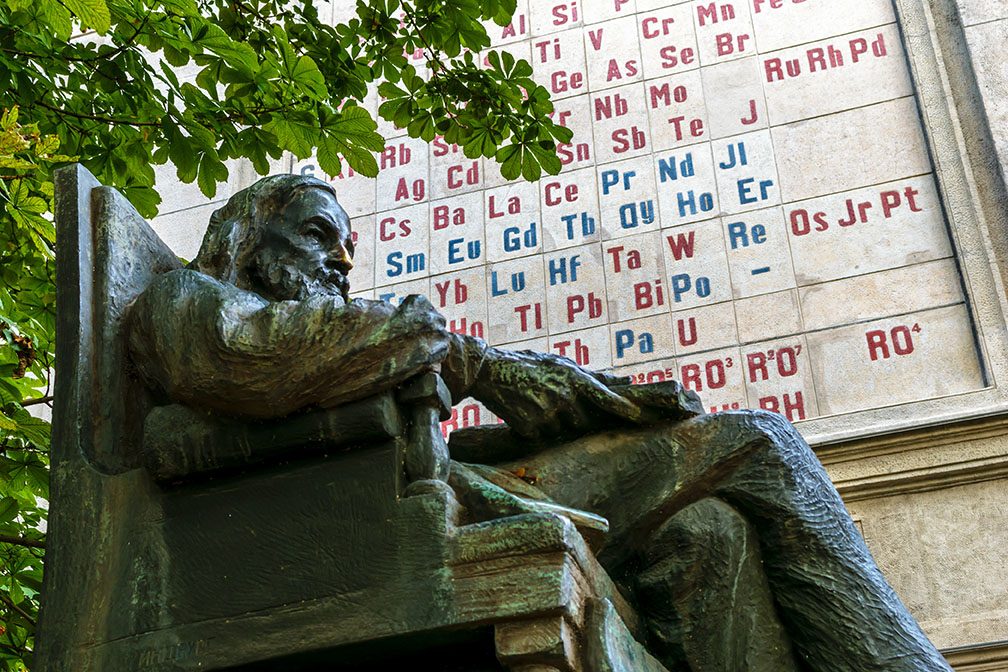

Dmitri Mendeleev was a Russian chemist and inventor who is best known for creating the periodic table of elements. The periodic table is a chart that organizes the elements by their atomic number, electron configuration, and chemical properties.
Mendeleev's periodic table was a revolutionary breakthrough in chemistry. It helped scientists to understand the relationships between the elements and to predict the properties of new elements. The periodic table is still used by chemists today as a fundamental tool for understanding and organizing elements.
Mendeleev was born in Tobolsk, Russia, in 1834. He showed an early interest in science and mathematics, and he went on to study chemistry at the University of St. Petersburg. After graduating, Mendeleev worked as a teacher and researcher.
In 1869, Mendeleev published his periodic table. The table was based on his observation that the properties of the elements repeated in a regular way when they were arranged in order of increasing atomic weight. Mendeleev's table was a major breakthrough in chemistry, and it helped to revolutionize the way that scientists understood the elements.
Mendeleev also made contributions to the study of thermodynamics, electrochemistry, and spectroscopy. He was a prolific inventor, and he patented over 150 inventions. Mendeleev died in 1907.
Mendeleev studied chemistry at the University of St. Petersburg, where he later became a professor.

Dmitri Mendeleev is a proper noun.
The name "Dmitri" is of Russian origin. It is a Slavic name that means "beloved of God". The name is derived from the Greek name Demetrios, which also means "beloved of God".
The surname "Mendeleev" is also of Russian origin. It is derived from the Russian word "mendeley", which means "small river".
Why is Dmitri Mendeleev famous?
Question:
Who was Dmitri Mendeleev, and what was his significant contribution to the field of science? Explain the development and importance of Mendeleev's periodic table and how it revolutionised our understanding of the elements. (6 marks).
Answer:
Dmitri Mendeleev was a Russian chemist who made a groundbreaking contribution to the field of science with the development of the periodic table. In 1869, Mendeleev arranged the known elements in order of increasing atomic mass and observed recurring patterns in their properties. He organized the elements into rows and columns, placing those with similar properties in the same group. Mendeleev left gaps in the table where he predicted unknown elements would be discovered, and he even correctly predicted the properties of some of these elements.
Mendeleev's periodic table was a significant advancement as it provided a systematic way to categorise and understand the elements. It not only highlighted the periodicity of chemical properties but also paved the way for predicting and discovering new elements. His work was instrumental in shaping modern chemistry and laid the foundation for the periodic table that we use today, enhancing our comprehension of the building blocks of matter and their relationships.
Address
Developing Experts Limited
Exchange Street Buildings
35-37 Exchange Street
Norwich
NR2 1DP
UK
Phone
01603 273515
Email
hello@developingexperts.com
Copyright 2025 Developing Experts, All rights reserved.